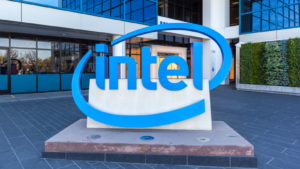Trade wars are always destructive. The current escalation in the chip wars will be no different. The Biden administration banned the use of equipment from China’s Huawei and ZTE over alleged national security concerns. Semiconductor stocks like Nvidia (NASDAQ:NVDA) were prohibited from selling their high-end chips to China.
The Impact of Beijing’s Retaliation
Beijing is now retaliating by barring the country’s telecommunications companies from utilizing chips from American chipmakers. China’s largest telecoms China Mobile and China Telecom must now choose from a list of local suppliers. This move puts a number of U.S. semiconductor stocks at risk, as their sales growth heavily relies on Chinese companies.
Chip Stock Concern: Advanced Micro Devices (AMD)

Advanced Micro Devices (AMD) is facing challenges due to its significant reliance on the Chinese market. Despite generating buzz with new high-powered AI chips, China remains a critical end market. In AMD’s fourth-quarter filing, sales to China totaled over $3.4 billion, representing 15% of its total annual revenue of $22.7 billion.
Struggles for Intel (INTC)

Intel faced challenges as well, with 27% of its revenue coming from China last year. The chipmaker highlighted that $3.2 billion, or 6% of its total revenue last year, was dependent on U.S. export control authorizations. China remains Intel’s largest market, with uncertainties surrounding future revenue growth.
Understanding Arm Holdings’ (ARM) Resilience

Arm Holdings has managed to navigate through export controls to China via its joint venture, Arm China. Despite facing challenges, Arm Holdings saw a 7.9% rise in its sales to China during the fiscal third quarter, reaching $206 million. Arm China represents almost a quarter of Arm’s revenue.
Investors may find solace in Arm Holdings as a semiconductor stock that continues to grow its business in China and beyond.

